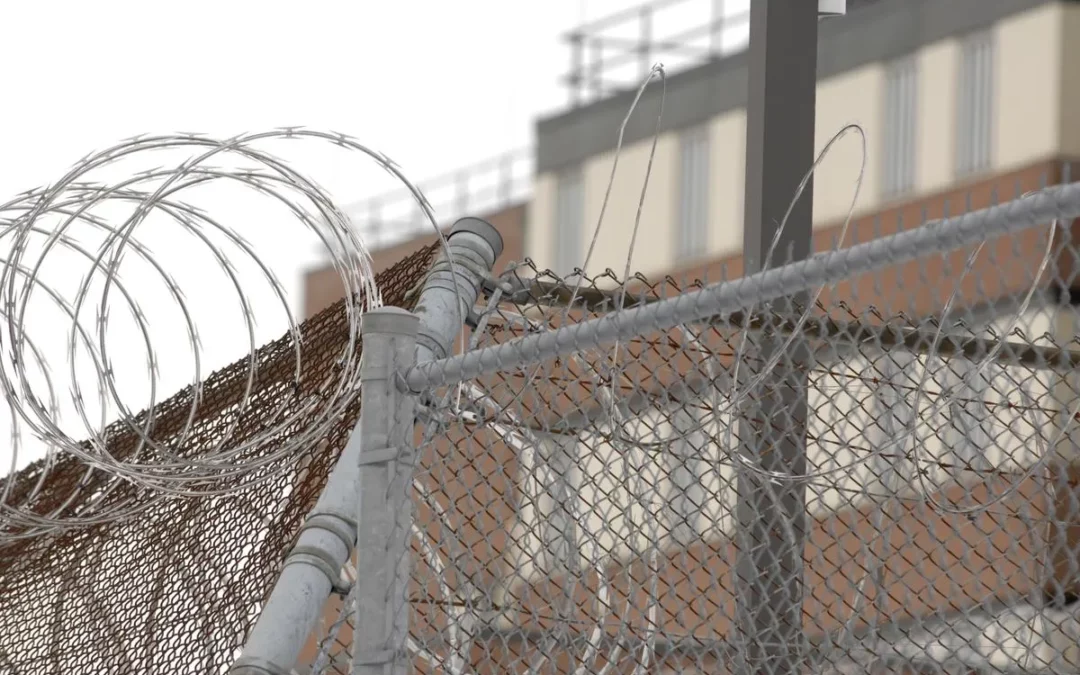Nicholas Keung
June 17, 2021
Toronto Star
Toronto Star – The number of people being held in detention in Canada over immigration violations — including those with mental health issues and including young children — has continued to grow, despite the federal government’s promise to detain migrants only as a last resort.
In 2019-20, more than 8,800 people — 138 of them children, including 73 under the age of six — were detained on “immigration hold,” some in maximum-security jails, up 41 per cent from 6,268 in 2016-17, according to a report released Thursday.
“You have babies in jail-like facilities. … What we really need are structural, legislative changes,” Hanna Gros of Human Rights Watch told the Star.
“Canada prides itself on welcoming refugees and newcomers with open arms, but so many people who come here to seek protection and a better life are met with handcuffs and incarceration with no set dates of release.
“It just doesn’t align with the values that we’re known for.”
In 2016, then-public safety minister Ralph Goodale unveiled a new national immigration detention strategy to address long-standing concerns about the length and conditions of immigration detention.
The plan included $5 million to increase “alternatives to detention” through community supervision services such as improved human and electronic monitoring systems — for example, the use of performance bonds, cash deposits and electronic-reporting systems. It also committed $10.5 million toward better health services, including mental health supports.
New policies were also introduced to make detention statistics publicly available, conduct regular consultations with advocacy and community groups, and to undertake regulatory reforms with respect to children in immigration detention.
The joint report by Human Rights Watch and Amnesty International documents the experience of 24 migrants who were in immigration detention for periods ranging between three days and six years, including one person who was held at the time of the interview in 2021.
Researchers interviewed former detainees, lawyers, academics, officials with Canada Border Services Agency and the refugee board, and conducted extensive documentation reviews such as internal government reports between February 2020 and March 2021.
They found that Canada has held more than 300 immigration detainees for longer than a year since 2016. The longest detention lasted over 11 years and involved a man with an apparent mental health condition, who was subjected to solitary confinement in jail and whose identity the government could not establish.
“For many detainees, not knowing how long they will be detained causes trauma, distress and a sense of powerlessness. Detention can exacerbate existing psychosocial disabilities and frequently triggers new ones, including depression, anxiety, and post-traumatic stress,” said the 125-page report, titled “I Didn’t Feel Like a Human in There.”
“Many immigration detainees develop suicidal ideation as they begin to lose hope, particularly those fleeing traumatic experiences and persecution in search of safety and protection in Canada. Immigration detention has especially harmful effects on communities of colour, refugee claimants, children, and families.”
In 2018-19, a fifth of immigration detainees in Ontario provincial jails — 174 of 853 — were placed in segregation at least once, according to provincial government data. Among these placements, 40 per cent involved immigration detainees with a mental health and/or suicide alert; 14 per cent lasted for 15 or more days.
Similarly, in 2019-20, among the 1,066 immigration detainees held in Ontario jails, 17 per cent (176 detainees) were placed in solitary confinement at least once — 46 per cent of them involved persons with a mental health and/or suicide alert, 13 per cent lasted for 15 or more days.
CBSA officials have also been accused of using detainees’ psychosocial disabilities to justify the detention in legal proceedings, the report says, arguing that their conditions make them “unreliable,” “deceptive,” “untrustworthy,” “uncontrollable,” or “unable to comply.”
Immigration detainees with physical and sensory disabilities also face severe barriers in provincial jails, according to the report.
Abdelrahman Elmady, a former detainee from Egypt with a hearing disability, was arrested upon his arrival in Vancouver for asylum in 2017. Canadian border officials confiscated his belongings, including his rechargeable hearing-aid battery.
He was incarcerated for about two months in three different provincial jails — Vancouver Jail, Fraser Regional Correctional Centre, and North Fraser Correctional Centre — and spent several weeks in solitary confinement.
Elmady told researchers he had to rely on border officers to provide him with hearing aid batteries, which would last only 10 hours. He was only provided with one battery at a time, and only during officers’ interviews or detention review hearings. As a result, Elmady spent most of his time in detention “in complete silence.”
“At the jail, I couldn’t hear anything. … I tried to save the battery as much as possible. I turned it off to save it for very important situations,” said Elmady, who has been separated from his wife and two young sons in Egypt since he fled his homeland in 2017.
“For the first three days (in detention), I asked to call my family and they gave me a phone. I told my wife: ‘Don’t worry about me.’ After that, I couldn’t contact my family for the rest of my time in detention. No one knew about me. I didn’t know what to do.”
Although the border agency did release many immigration detainees in the course of the pandemic, Gros said the ratio of those held in provincial jails rather than immigration holding centres, as well as the average length of detention, both doubled.
Following the COVID-19 crisis, Canada held about half of all immigration detainees in provincial jails, up from about a fifth of detainees prior to the pandemic.
“For the people who did remain in detention during the pandemic, the conditions did become harsher. There were hunger strikes by detainees. There’s a lot more lockdowns. There’s lack of access to masks, phones and showers,” said Gros.
According to official data obtained by the researchers, only about 20 per cent of detainees were held for public safety concerns during the pandemic. The vast majority of people were held because authorities were unsatisfied with the individuals’ documents, believed they were a flight risk or just for the purposes of further examination.
“Immigration detention should gradually be abolished in Canada,” the report concludes. “Under no circumstances should a person for immigration-related reasons be treated in a punitive manner, including being subjected to solitary confinement, or detained in facilities used for criminal law enforcement, such as jails, prisons, or police stations, or in jail-like facilities.”
The report calls on Ottawa to end the use of provincial jails for immigration detention, transform current immigration holding centres into open and safe reception facilities, and replace detention with community-based case management as alternatives to detention.
It also recommends an independent civilian oversight body be established to oversee and investigate complaints against the border agency in the event of allegations of abuse, neglect, or other human rights concerns, in order to hold the government accountable.
Related Articles
A protest against a brutal regime
The Imprisoned Blogger - People gathered on the streets protesting discrimination by a regime that has violated every human right you could conjure...
New human-rights campaign targets Canadian practice of holding some asylum seekers in jails
The Globe and Mail - Human Rights Watch and Amnesty International are launching a campaign urging Canadian provinces to cancel arrangements with the...
Canada: Stop Incarcerating Immigration Detainees in Provincial Jails
Human Rights Watch (Ottawa) – Provincial governments should sever their contracts to hold immigration detainees in provincial jails, where many...




